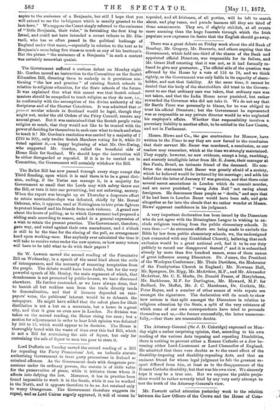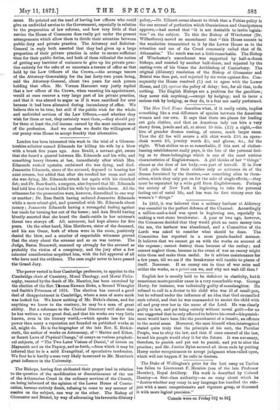Mr. Fawcett called attention yesterday week to the relatiorw between
the Law Officers of the Crown and the House of Cum. mons. He pointed out the need of having law officers who could give an undivided service to the Government, especially in relation to the preparation of law reforms, and how very little of that service the House of Commons does really get under the present arrangements which allow them to divide their attention between public duty and private practice. The Attorney and Solicitor- General in reply both asserted that they had given up a large proportion of their private practice in order to secure sufficient time for their public duties, and both of them ridiculed the notion of getting any barrister of eminence ro give up his private prac- tice entirely for the sake of so uncertain a tenure of office as that held by the Law Officers of the Crown,—the average tenure -of the Attorney-Generalship for the last forty-two years being, said the Attorney-General, about two years for each person holding that office. Mr. Vernon Harcourt very justly replied that a law officer of the Crown, when vacating his appointment, would at once recover a very large part of his private practice, and that it was absurd to argue as if it were sacrificed for ever because it had been alienated during incumbency of office. We believe this to be true, but still if the public wish for the whole -and undivided services of the Law Officers,—and whether they wish for them or not, they certainly want them,—they should pay for them at least the full income earned by the most eminent men of the profession. And we confess we doubt the willingness of -our penny-wise House to accept frankly that alternative.



































 Previous page
Previous page